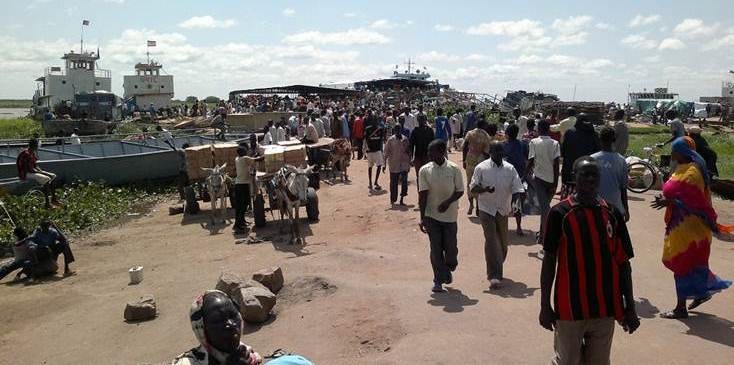More than 3000 Southerners are still stuck living on the railway in the city of Kosti in White Nile State since August last year. They are living in poor conditions and they fear spread of diseases among children and mothers.
Many of the estimated 3400 in-transit returnees live on the railway line or surrounding areas with poor drainage and without permanent shelters. A number of those living along the railway in interviews with Radio Tamazuj explained that they had come from various cities of the North just one month after the independence of South Sudan last year. They said they had come after hearing promises to be deported by the International Organization for Migration (IOM) and the National Displaced Center besides also the National Commission for Voluntary Return. They felt that these promises had been betrayed.
At one point 12,000 returnees in-transit had been in Kosti but many were moved by IOM. The ones living on the railway are the only ones still remaining, living in conditions that some described as ‘inhumane’. Peter Mayan, a returnee of origin in Northern Bahr El Ghazal, said the conditions are very bad now that it’s the rainy season. He said the people were living in water and on the gravel. He said it was especially a hardship for the women and children.
There are no organizations working in the humanitarian sector since the deportation of the bulk of the returnees from Kosti. Those remaining are selling luggage and possessions from the houses they had had in the North to maintain themselves. Peter Mayan appealed to the Government of South Sudan and the International Migration Organization not to forget about those remaining in Kosti.
IOM recently announced it faced a potential funding shortfall for the future saying it needs $40 million more for this year. “At this point, IOM is forced to consider the suspension of its return transport operations within the next two months,” Vincent Houver, IOM South Sudan Chief of Mission, said in a press statement 10 August.




